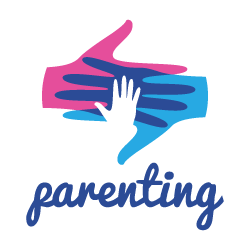How to Be a Good Parent
There is no secret ingredient to becoming a good parent, only guidelines.
Any parent will tell you that parenting is loaded with joy and contentment on the one hand, and frustration and guilt on the other. Parents are constantly questioning their own worth as a parent.
At such agonizing moments, I remember this quote from Kahlil Gibran:
You may give them your love but not your thoughts.
For they have their own thoughts.
You may house their bodies but not their souls,
For their souls dwell in the house of tomorrow,
which you cannot visit, not even in your dreams.
You may strive to be like them, but seek not to make them like you.
For life goes not backward nor tarries with yesterday.
There is no magical silver bullet to become a good parent. Each child is different, each parent is different. So, the first step to good parenting is:
 Do not compare: Yourself, or your child, with your neighbor, friend and even your own parents. Even between your mother and you, there are personality differences as well as generational differences. What worked back then may or may not work today. What worked for them (with you), may not work with your child.
Do not compare: Yourself, or your child, with your neighbor, friend and even your own parents. Even between your mother and you, there are personality differences as well as generational differences. What worked back then may or may not work today. What worked for them (with you), may not work with your child.
It takes me to two different points:
Won’t anything that worked then work now? Is our partner to be blamed for the child’s behavior?
- The attention our parents paid us will never go out of fashion. Today, parents are distracted owing to mobiles and social networks. While it is great to be connected with our old friends, colleagues, relatives, etc., take your eyes off the phone to connect to the child in front of you. Providing them with toys, junk food, nannies or any other alternative is not good enough. Especially in the early years, the presence of a parent is very important. Believe you me, do it for five to six years and then, even if you beg them to, they will prefer their peers to you and you will get your freedom back.
- Both partners have an important role to play in the upbringing of a child. But it is not equal. One parent takes the lead and the other plays a supportive role. If you think your partner is doing something wrong or different, speak to him/her separately and not in the presence of the child. Children are innocent, but sharp. The moment they see a weak spot, they capitalize on it. Similarly, if you send confusing signals, it can impact them negatively.
 Discipline vs indulgence: The maxim, ‘spare the rod, spoil the child’ is no longer valid. However, this does not mean the child is indulged at all times. Firmness and clarity of the message are important. Parents are the primary guide to social behavior and growth as well as development of the body and mind. Do not compromise on that.
Discipline vs indulgence: The maxim, ‘spare the rod, spoil the child’ is no longer valid. However, this does not mean the child is indulged at all times. Firmness and clarity of the message are important. Parents are the primary guide to social behavior and growth as well as development of the body and mind. Do not compromise on that.
Value education: Our means have certainly improved and we can afford to give our kids a good lifestyle. While it is good to provide the child with a happy environment, it is not dependent merely on the things they possess. Learning to hear and accept ‘no’ is an important aspect of growing up. Understanding the value of their possessions is a message that can never be overrated. Let the child explore and learn. Be a facilitator.
 Freedom vs safety: While you need to protect your child against dangers, you should also let them fall and get up. Overprotectiveness can make them clingy, helpless and dependent. Too much freedom can lead them to face dangerous situations. Be around, but in the background.
Freedom vs safety: While you need to protect your child against dangers, you should also let them fall and get up. Overprotectiveness can make them clingy, helpless and dependent. Too much freedom can lead them to face dangerous situations. Be around, but in the background.
There are many more aspects to becoming a good parent, but in this age of mobiles and electronic gadgets, one word of caution is a must: there is pride that our children learn to operate the mobile and the internet at the ages of two and three. Yes, children do display intelligence which is to be appreciated. But these gadgets are also harmful for the physical and mental development of children. Inculcate healthy practices such as eating right, exercising right, and using gadgets in moderation so that children can learn from your example.












































